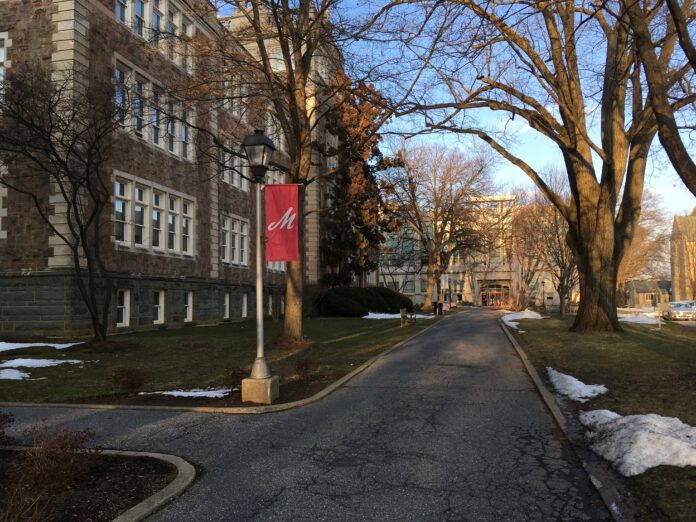“As a full community at Muhlenberg, we recognize that emotional health is everybody’s responsibility.” This is Dean of Students Allison Gulati’s philosophy on the mental well-being of the Muhlenberg student body. Earlier in the semester, Muhlenberg began its four-year partnership with The Jed Foundation, a non-profit organization focused on the mental well-being of young people. According to Gulati, Muhlenberg’s new partnership with The Jed Foundation will continue to strengthen the measures already in place. She says that in recent years, the College has increased its focus on mental health and invested more time and energy into “making sure that the [Counseling] Center supported equity and inclusion on campus, reflected the diverse identities of our student body, and were equipped to work with students who were experiencing a whole range of different issues.”
In a strategic planning session with The Jed Foundation, students, faculty and staff gathered virtually for two days to discuss the recent data from a mental health study. It surveyed students at Muhlenberg on their opinions about the College’s approach towards mental health, what aspects they think are working, and which need improvement. All of this preliminary work will lead up to the eventual creation of new programs and the refinement of existing ones.
The Jed Foundation first entered Gulati’s radar in 2018. At that time, declining mental health among college-age individuals was becoming more prevalent. With this in mind, Gulati looked into The Jed Foundation and noticed that “their framework for supporting mental health nationally, with college students, really aligned with our values.”
“We want people to know that we’re here if they need us.”
These shared principles incentivized the college to apply for a grant from The Jed Foundation. They received this grant in early 2020, right before the COVID-19 pandemic hit the United States. They did not know that the events and tragedies to come would have a massive impact on the mental health of collegiate students. However, in light of these developments, the College’s work with The Jed Foundation has proven to be more necessary than ever.
Gulati believes that the College’s main issue is its struggle to communicate its plethora of resources to its attendees. According to Gulati, The Jed Foundation will provide much needed aid in that area, as it is an external group that will offer an outside perspective to supplement the internal work that the College has already done.
Muhlenberg’s primary resource for students struggling with their mental health is the Counseling Center led by Timothy Silvestri, Ph.D. In these turbulent times when many students are, “experiencing moments or periods of burnout, loneliness, stress, and emotionality,” Silvestri believes that the Counseling Center is an all-important agency. The Center is filled with many experienced counselors, like Pracheta Trivedi, M.Ed., LPC. Trivedi remarks that the counseling staff has “had to be creative with how [they] provide therapy.” The team has had to participate in increased training on how to be there for their clients in a virtual setting. Despite an uptick in session requests, Trivedi notes that wait times for sessions still remain brief.
Trivedi’s positive outlook continues to hold strong. She notes one benefit to the stay-at-home-orders is that students are forced to engage in “seemingly vulnerable” conversations with family and friends surrounding boundaries. She prides her clients on their adaptability around how they manage their anxiety and loneliness during these difficult times.
“Who knows the student voice better than the students?”
Trivedi also serves as the Staff Advisor on another, newer mental health resource: the Mental Health Peer Advocates (MHPA). A peer educator in college herself, Trivedi knew the importance of having a group like this on campus. She began the organization with only two members in Fall 2019. Since then, the MHPA has grown to encompass 24 advocates and boasts more than 200 followers on Instagram. Trivedi stresses the influence and value of the group saying, “Who knows the student voice better than the students?”
One of the founding MHPA members and its current president, Megan Lyttle ‘23, exemplifies Trivedi’s statement. When first formed, the advocacy group mostly worked in conjunction with other peer education organizations. Now, the MHPA is heading the Out of Darkness walk on April 17 for suicide prevention. Lyttle says that her group’s primary goal is to connect students to mental health services. She emphasizes that, “We want people to know that we’re here if they need us.”
COVID’s impact has taken a toll on the mental health of the Muhlenberg community. In a time when the collective decline of emotional well-being seems inevitable, the College’s increased resources are there to provide a place of comfort, emotional support, and inclusion to all students.
Katie is a Media & Communication and Political Science double major in the class of 2024. When she's not working on the paper you can find her blasting Taylor Swift, reading Jane Austen, or crying over Little Women (2019).























